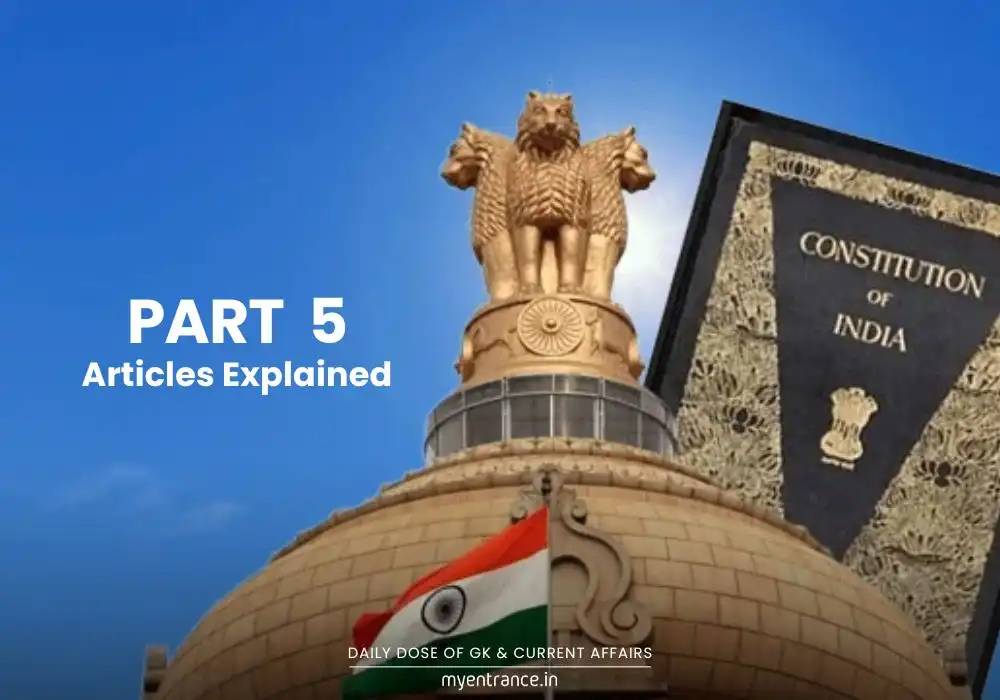Translate Language
Banking Laws (Amendment) Act 2025: Key Changes & Exam Relevance
The Banking Laws (Amendment) Act, 2025 introduces major reforms in India’s banking sector, impacting governance, depositor protection, and audit quality. For competitive exam aspirants (SSC, UPSC, PSC, etc.), understanding these changes is crucial. This guide covers key amendments, their significance, and sample questions to help you prepare effectively.

Key Highlights of the Banking Laws (Amendment) Act, 2025
1. Major Legislative Updates
The Act amends five key banking laws:
Reserve Bank of India Act, 1934
Banking Regulation Act, 1949
State Bank of India Act, 1955
Banking Companies (Acquisition & Transfer) Acts of 1970 & 1980
The government officially notified the changes on 1st August 2025, with key provisions published in the Official Gazette in July 2025.
2. Revised Definition of “Substantial Interest”
The threshold for “substantial interest” (eligibility for bank directorship) has been raised from ₹5 lakh to ₹2 crore.
This change, last updated in 1968, ensures only significant stakeholders influence bank governance.
3. Extended Tenure for Cooperative Bank Directors
The maximum tenure for cooperative bank directors (excluding chairpersons) has been increased from 8 to 10 years.
This aligns with the 97th Constitutional Amendment, ensuring stability in cooperative banking.
4. Transfer of Unclaimed Funds to IEPF
Public Sector Banks (PSBs) can now transfer unclaimed deposits, shares, and bond redemptions to the Investor Education and Protection Fund (IEPF).
This move improves management of dormant accounts and protects investor interests.
5. Enhanced Powers for Statutory Auditors
PSBs can now remunerate statutory auditors independently, ensuring better audit quality.
This promotes transparency and accountability in public sector banking.
6. Simplified Reporting for Banks
Instead of weekly reporting (every Friday), banks must now submit reports on the last day of the fortnight, month, or quarter.
This reduces compliance burdens while maintaining regulatory oversight.
Why is This Important for Competitive Exams?
UPSC, SSC, PSC, and Banking Exams frequently include questions on recent banking reforms.
The 2025 amendments are crucial for current affairs, economy, and governance sections.
Understanding these changes helps in essay writing, MCQs, and interviews.
Questions & Answers on Banking Laws (Amendment) Act, 2025
Q1. When did the Banking Laws (Amendment) Act, 2025 come into effect?
Ans: The Act came into force on 1st August 2025.
Q2. What is the revised threshold for “substantial interest” under the new Act?
Ans: The limit has been increased from ₹5 lakh to ₹2 crore.
Q3. How does the Act impact cooperative bank directors?
Ans: It extends their maximum tenure from 8 years to 10 years, aligning with the 97th Constitutional Amendment.
Q4. Where can unclaimed bank deposits be transferred under the new law?
Ans: They can now be transferred to the Investor Education and Protection Fund (IEPF).
Q5. What change has been made in bank reporting to RBI?
Ans: Banks now report on the last day of the fortnight/month/quarter instead of weekly.
Final Thoughts
The Banking Laws (Amendment) Act, 2025 is a game-changer for India’s financial sector. For UPSC, SSC, PSC, and banking exam aspirants, mastering these updates is vital for scoring well in current affairs. Stay tuned to MyEntrance.in for more exam-focused insights!
Get 3 Months Free Access for SSC, PSC, NIFT & NID
Boost your exam prep!
Use offer code WELCOME28 to get 3 months free subscription. Start preparing today!















